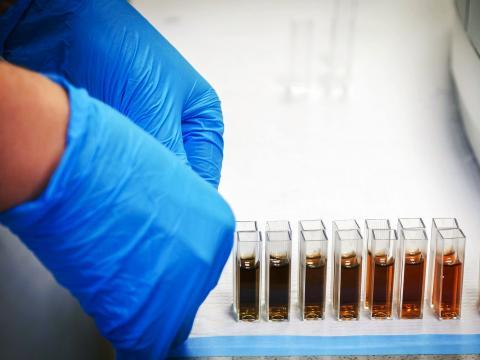
BMC Seminar Thursday 10th of November at 12:00 in Læknagarður, room 343
Speaker: Birkir Þór Bragason, Keldur Institute for Experimental Pathology
Title: A comparison of the genomes of Icelandic Renibacterium salmoninarum isolates to genomes of isolates from North America, Europe, and Chile.
Abstract: Studies have shown that the causative agent of bacterial kidney disease (BKD), the Gram-positive bacterium Renibacterium salmoninarum (Rs), is endemic in wild salmonids that inhabit Icelandic freshwater systems, i.e., Arctic charr (Salvelinus alpinus), brown trout (Salmo trutta), and Atlantic salmon (Salmo salar). Despite the prevalence of Rs in the wild, macroscopic pathological signs of BKD have not been observed in wild salmonids since regular monitoring started in 1986 and it has been suggested that Rs has been endemic in the Icelandic populations for a long time. The first case of BKD in Iceland was reported in 1968 in association with fish farming and the disease has since then occurred on a regular basis on fish farms in Iceland. This has been associated with the introduction of Rs into the farms via intake of freshwater from local water systems. Therefore, the Rs strains that cause disease in the aquaculture environment should represent the wild, endemic, strains. Culturing of Rs from wild salmonids has not been successful whereas culturing of Rs from aquaculture outbreaks is successful. This aim of the study described in this talk was to gain insight into the genome of Icelandic Rs strains and their relationship to genomes of Rs strains that have been isolated in North America, Europe, and Chile. Whole genome sequencing was performed on DNA isolated from Icelandic Rs strains stored at Keldur. Raw whole genome sequencing data for 110 Rs strains from Europe, North America, and Chile was obtained from the European Nucleotide Archive. The sequencing data were analyzed by alignment to the reference strain, ATCC33209, as well as by de novo genome assembly. Analyses based on both methods suggest that Icelandic Rs strains form a lineage that is distinct compared to the two Rs lineages previously described in the literature. Divergence dating suggests that the Icelandic lineage split from the other two lineages prior to the beginning of aquaculture activities in Iceland.
